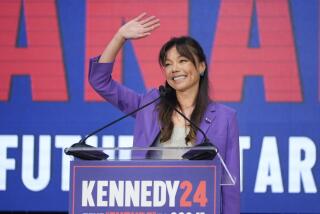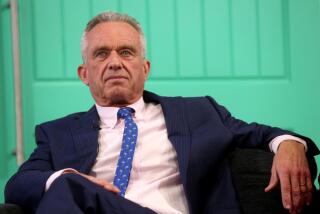Remembering JFK: Dallas looks back at Nov. 22, 1963
DALLAS -- Ruth Altshuler, a Dallas philanthropist whose father founded Fidelity Union Life Insurance Co., organized the city’s first official commemoration of the assassination of President John F. Kennedy. The ceremony, featuring music and readings from Kennedy’s speeches, will begin at 11:30 a.m. CST Friday.
As the 50th anniversary of the killing approached, Altshuler, 88, spoke about the impact of the murder on Dallas’ reputation, about what she hopes Friday’s event will accomplish and where she was when the president was shot. She had hope to see him that day, Nov. 22, 1963.
When the president arrived in Dallas, you were serving on a grand jury but planning to attend his luncheon at the Dallas Trade Mart?
Yes, there were 11 men and me. Several of us were going to the luncheon, so we let out a little early, and I went and stood [in Dealey Plaza] on the corner in front of the book depository to wait for my husband. Little did I know this evil man was inside building his [sniper’s] nest.
Why did you want to be there to see the Kennedys?
They were absolutely the most glamorous couple that had inhabited the White House, and she was just on Vogue’s cover.
After stopping at Dealey Plaza, you went to the Trade Mart to await the president’s arrival for the luncheon. What was it like at the Trade Mart?
Right where we were sitting the press ran in, then five minutes later they ran out just as they had run in. We were more puzzled than ever. Joe Dealey [whose family ran the Dallas Morning News] was standing by me with a transistor radio — that was all we had back then. He told me later he knew what was going on, but he didn’t want to tell me because he wasn’t sure how people in the hall would react.
Joe Johnson, who would later become our great mayor, he took the microphone and said something like, “The president has been shot.” He didn’t say killed but shot.
Rev. Luther Holcomb, a local minister, gave a benediction — he had been scheduled to give the benediction for the luncheon.
As we were leaving we walked by the head table. It was so poignant — there was the presidential seal, the yellow roses — everyone thought they had to have yellow roses, like that song, “The Yellow Rose of Texas.” The fruit cocktail was still there. Even telling it now, it’s eerie.
Days later, after Jack Ruby shot Lee Harvey Oswald on live television, the grand jury you served on had to consider charges against Ruby. What was that like?
Well, millions of witnesses watched it happen. With millions of witnesses, there was enough evidence for a trial. I remember Dist. Atty. Henry Wade, that was the only case he came to present in person.
The judge who presided over the grand jury invited you to attend Ruby’s trial — why did you go?
My husband said I wouldn’t go if it was in the next room. But I went and I asked my friend to go — we were sort of like the “Real Housewives.” I remember sitting between Mrs. Oswald [Oswald’s mother] and Marina [Oswald’s wife] and I didn’t really know who either of them was.
I sat in the back row with the press. There wasn’t much room — there were only about six or eight spaces for press.
I was 50 years cuter than I am now, and I was the only woman. When the judge saw me come in, he kind of waved to me. There was this startling testimony going on, then he started writing a note, and he called bailiff over and handed it to me. I found it in a scrapbook the other day — I think I’ll sell it on eBay or something. It said, “I’m about to call a recess. Why don’t you get us a Coke and a Dr Pepper.” So I brought it back to his chambers. [She laughs] My historic note!
After the assassination, Dallas was derided as “The City of Hate.” As a native Dallasite, how did you feel about that?
Why they call it “The City of Hate” I don’t know. There were hundreds of people along the parade route. There was not one bit of hostility.
I don’t think it justified 50 years of people carrying on that Dallas was this terrible city. This city is so alive, it’s always been. I have seen so much charity and volunteerism here. This is a city that takes its responsibilities seriously.
What was it like for Dallasites after the assassination?
It’s like losing your mother or something. You grieve it slowly, but you have to get on with your life. This city has not been under a cloud for those of us living here. We’re just a very sophisticated and alive city.
Dallas Mayor Mike Rawlings asked you to organize the anniversary commemoration. Why did you agree?
I was saying no in seven different languages, but he said, “Do it for Dallas,” and that was a knife through my heart because I love Dallas.
How did you go about planning the event?
He told me to own it, so I started putting the program together right away. I went home that day and called David McCullough. Then I thought — music. I said I want the Navy choir. A commemoration needs music, and he [Kennedy] was a Navy man.
McCullough is scheduled to read excerpts from Kennedy’s speeches at the commemoration. He’s a famous historian and friend of the Kennedys — how did you know him and why did you want him to participate?
I knew him because we traveled [in Europe] on a Library of Congress trip to follow in the steps of John Adams, Thomas Jefferson and others.
Not every writer is a good speaker, but he speaks beautifully and his voice is so good. He’s going to come and do 10 minutes — some outstanding quotes that we’ve all grown up with. He’s going to talk to Caroline [Kennedy] and possibly get some more quotes and possibly share some thoughts of his own.
Are any members of the Kennedy family expected to attend?
I don’t think so. We didn’t want this to become a sideshow. We want this very sedate, very somber. It’s a commemoration, not a celebration. She [Caroline] expressed early on that she was not coming. I don’t blame her. She’s avoided it as much as she can all these years.
What do you hope the commemoration of Kennedy’s assassination accomplishes for those in attendance and those watching at home?
It will give them time to reflect on his life — he was a war hero in the South Pacific. They just take such a young man at the peak of his life and career. You think of that.
And then we want them to see Dallas. No one ever blamed Memphis for Martin Luther King or Los Angeles for Bobby Kennedy. This has been so unfair.
Hopefully it finally brings closure once and for all. The mayor realized we should do it and do it properly — very somber and dignified and reverent to honor this young president who was shot in the city.
Living in Dallas for all these years after the assassination, are you often reminded of that day?
Every now and then when I see the Trade Mart, I think about it. And Parkland [Hospital], we all drive by that — it’s such a routine part of Dallas, you get used to it.
The Sixth Floor Museum [in the former book depository] has really been developed — they told me they had 350,000 people last year. I never go by Dealey Plaza when there are not a few stragglers taking photos of the grassy knoll.
Dealey Plaza is quite beautiful. There’s still a curiosity — it could have been 50 years ago or yesterday. They’ll even come here on their vacation. I feel that way about Ford’s Theater in Washington. There’s a natural curiosity about all this.
ALSO:
Officer J.D. Tippit’s widow recalls JFK assassination, legacy
Cop at JFK killing searched depository, called out, ‘Here’s a rifle’
JFK assassination reporter recalls Zapruder saying, ‘I know he’s dead’
More to Read
Start your day right
Sign up for Essential California for news, features and recommendations from the L.A. Times and beyond in your inbox six days a week.
You may occasionally receive promotional content from the Los Angeles Times.







